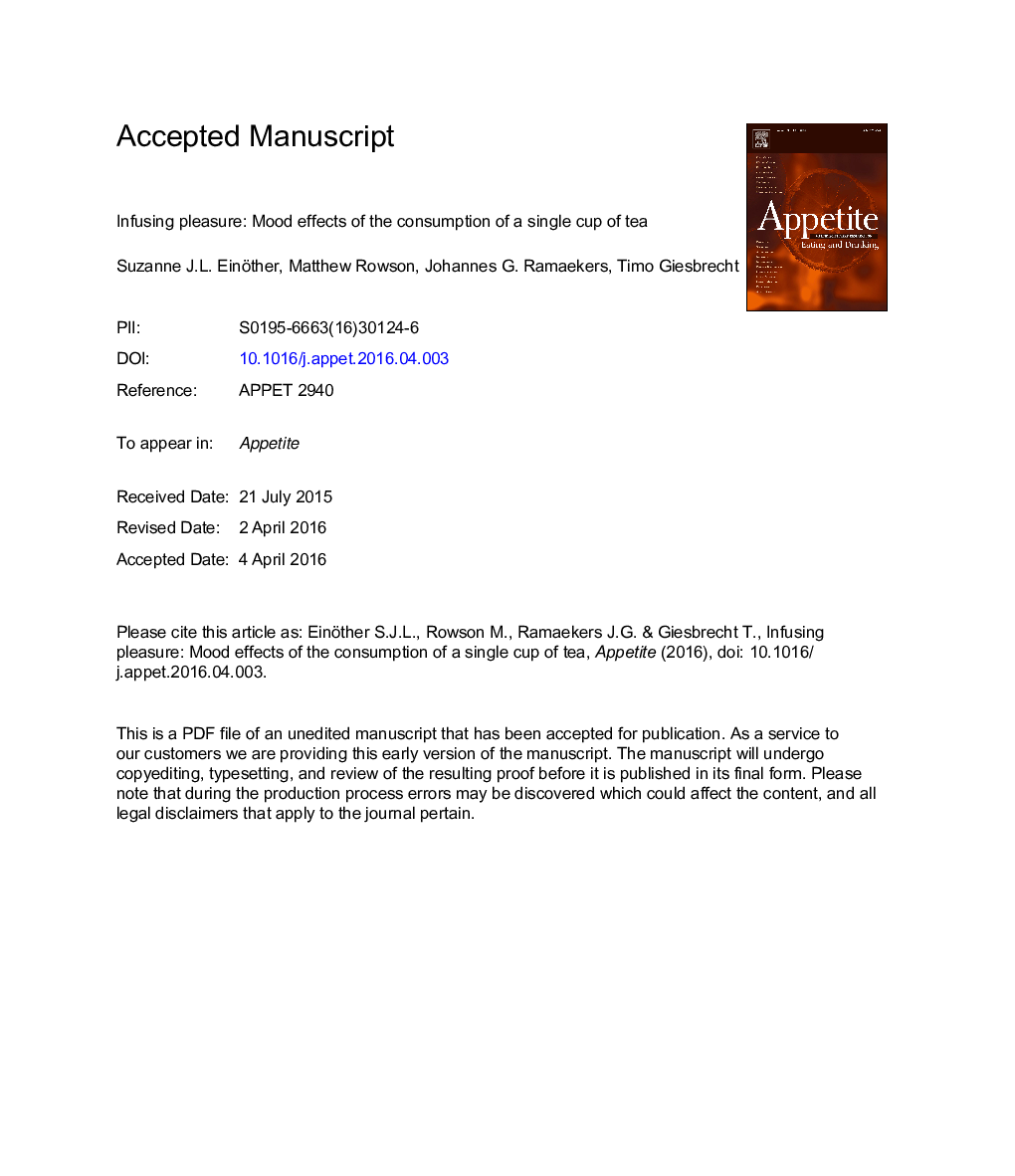| Article ID | Journal | Published Year | Pages | File Type |
|---|---|---|---|---|
| 7307452 | Appetite | 2016 | 33 Pages |
Abstract
Tea has historically been associated with mood benefits. Nevertheless, few studies have empirically investigated mood changes after tea consumption. We explored immediate effects of a single cup of tea up to an hour post-consumption on self-reported valence, arousal, discrete emotions, and implicit measures of mood. In a parallel group design, 153 participants received a cup of tea or placebo tea, or a glass of water. Immediately (i.e. 5Â min) after consumption, tea increased valence but reduced arousal, as compared to the placebo. There were no differences at later time points. Discrete emotions did not differ significantly between conditions, immediately or over time. Water consumption increased implicit positivity as compared to placebo. Finally, consumption of tea and water resulted in higher interest in activities overall and in specific activity types compared to placebo. The present study shows that effects of a single cup of tea may be limited to an immediate increase in pleasure and decrease in arousal, which can increase interest in activities. Differences between tea and water were not significant, while differences between water and placebo on implicit measures were unexpected. More servings over a longer time may be required to evoke tea's arousing effects and appropriate tea consumption settings may evoke more enduring valence effects.
Related Topics
Life Sciences
Agricultural and Biological Sciences
Food Science
Authors
Suzanne J.L. Einöther, Matthew Rowson, Johannes G. Ramaekers, Timo Giesbrecht,
